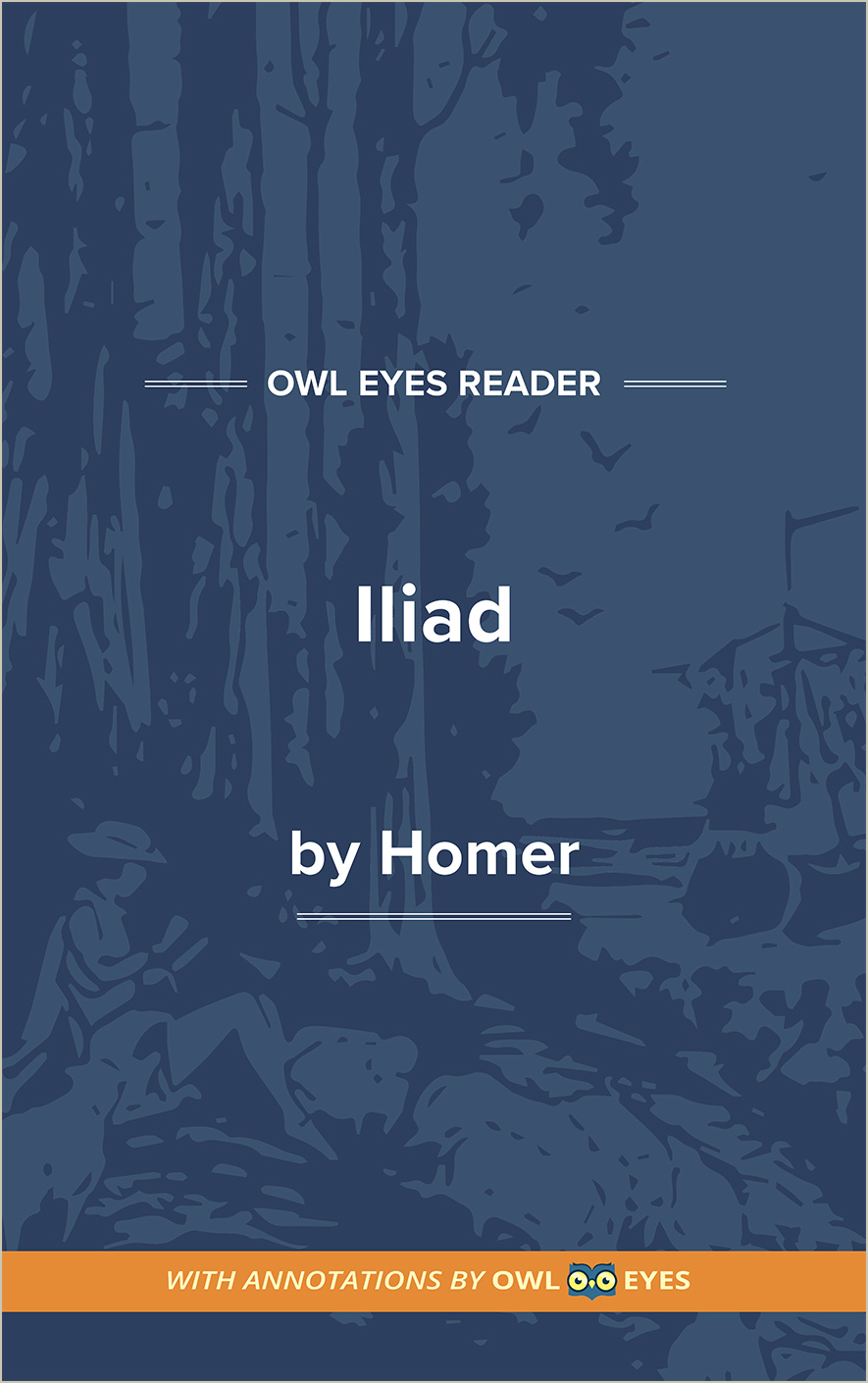Analysis Pages
Quote Analysis in Iliad
Below are several of the most famous quotes from The Iliad of Homer. Each has an accompanying annotation with analysis.
Quote Analysis Examples in Iliad:
Book I
🔒"SING, O GODDESS, the anger of Achilles son of Peleus..." See in text (Book I)
Book IX
🔒"Even now, however, be appeased, and put away your anger from you..." See in text (Book IX)
"If I stay here and fight, I shall not return alive but my name will live for ever: whereas if I go home my name will die, but it will be long ere death shall take me...." See in text (Book IX)
"Why, pray, must the Argives needs fight the Trojans?..." See in text (Book IX)
Book XIX
🔒"Thus did he speak, and the Achaeans rejoiced in that he had put away his anger...." See in text (Book XIX)
Book XXIV
🔒"The two wept bitterly—Priam, as he lay at Achilles' feet, weeping for Hector, and Achilles now for his father and now for Patroclus, till the house was filled with their lamentation..." See in text (Book XXIV)

